In the ever-changing climate of Centennial, CO, even minor neglect in property upkeep can spiral into major problems. Snowy winters, dry summers, and sudden spring thaws mean that rental homes need a little more than the occasional fix-it—it takes a full-year strategy to protect your investment.
Landlords who embrace a proactive maintenance schedule save money, extend the life of systems, and retain happier tenants. Whether you’re renting out a condo in Parker or a single-family home in Highlands Ranch, maintenance services from PMI Cherry Creek can help you stay a step ahead.
Key Takeaways
- Proactive maintenance reduces emergencies and lowers long-term repair costs.
- Centennial’s climate makes seasonal planning an essential part of property care.
- Clear lease terms keep maintenance roles well-defined for tenants and owners.
- Inspections catch small issues before they escalate into major expenses.
- Property managers handle planning, vendors, and tenant communication with ease.
Why Seasonal Maintenance Matters in Centennial
Colorado's Front Range is beautiful—but harsh. Between heavy snowfall, rapid snowmelt, hot summers, and the occasional hailstorm, rental homes in Centennial endure a lot of environmental stress. Landlords who stay ahead of these issues preserve property value and reduce vacancy rates.
Seasonal weather patterns often accelerate wear on HVAC systems, roofing materials, windows, and plumbing. Without regular upkeep, tenants may face comfort issues, and owners may face large repair bills.
Maintenance that’s well-timed can prevent those problems. Examples include:
- Scheduling HVAC service before the heating and cooling seasons
- Clearing the roof and gutter debris after storms
- Sealing cracks and gaps before the temperature drops
- Flushing water heaters to eliminate sediment buildup
- Insulating exposed pipes to prevent winter bursts
Strategic Planning = Reduced Repair Costs
Every landlord dread emergency repair calls—especially when they happen after hours or during a holiday. These events often stem from deferred maintenance, not bad luck. Centennial landlords who take a scheduled, strategic approach can avoid these urgent (and costly) situations.
A solid plan leads to:
- Fewer emergencies: System checks, and seasonal tune-ups reduce sudden breakdowns.
- Longevity of assets: Regular maintenance extends the life of your HVAC, appliances, and plumbing.
- Energy savings: A well-sealed, properly serviced home is more efficient year-round.
- Stronger tenant retention: Renters are more likely to renew when homes are safe and comfortable.
With PMI Cherry Creek managing the schedule, maintenance becomes predictable and cost-effective.
Your Centennial Seasonal Maintenance Blueprint
To truly protect your investment, it’s helpful to break maintenance down by season. Here’s a roadmap for keeping Centennial properties resilient throughout the year:
Spring
- Inspect the roof and gutters for ice dam damage or leaks
- Service HVAC ahead of summer use
- Clean and test irrigation systems
- Look for foundation cracks or moisture issues from snowmelt
Summer
- Monitor cooling system performance and change filters monthly
- Inspect and seal exterior surfaces exposed to the sun
- Schedule pest inspections
- Refresh paint or stain on decks and siding
Fall
- Flush the water heater and inspect for corrosion
- Test furnace operation and schedule service
- Clear gutters of falling leaves and debris
- Check weatherstripping on windows and doors
Winter
- Insulate pipes and protect exterior spigots
- Monitor heating performance during cold snaps
- Clear snow from walkways and roof edges
- Keep exhaust vents free of snow and ice buildup
Not in town full-time? PMI Cherry Creek’s home watch services ensure your property is routinely checked even when you’re not there.
The Power of Routine Property Inspections
Inspections are more than just a checkbox—they are a landlord’s best tool for early issue detection. By regularly examining key parts of your property, you can find signs of wear or damage before they grow into big-ticket repairs.
Three key types of inspections include:
- Move-in and Move-out: Establishes condition benchmarks and helps with security deposit assessments.
- Mid-lease: Confirms tenant care, detects overlooked problems, and keeps maintenance logs updated.
- Seasonal: Matches up with high-risk times of year to proactively address HVAC, plumbing, and roofing.
With PMI Cherry Creek, these inspections are built into your maintenance routine, keeping surprises to a minimum.
Who Handles What? Define It in the Lease
Maintenance confusion between landlords and tenants can quickly turn into disputes. The best way to prevent this is by clearly stating maintenance roles in the lease.
Landlord Responsibilities:
- Repairs to HVAC, plumbing, and electrical systems
- Exterior structure and roof upkeep
- Maintaining safety equipment like smoke alarms and CO detectors
Tenant Responsibilities:
- Changing air filters and light bulbs
- Reporting issues promptly
- Basic upkeep, like yard work or snow removal, if agreed upon
At PMI Cherry Creek, every lease is written with detailed terms, backed by our management guarantees, to ensure clarity and fairness.
High-Priority Systems That Need Extra Attention
In Centennial’s variable climate, some systems wear out faster than others. Preventing failure in these areas should be a top priority:
HVAC
- Bi-annual servicing (spring and fall)
- Monthly filter replacements during high-use months
- Duct inspection for airflow issues
Plumbing
- Insulate piping before the first freeze
- Watch for slow drains or fluctuating water pressure
- Check under sinks and around appliances for leaks
Roof and Gutters
- Remove debris seasonally
- Look for loose shingles or flashing after storms
- Ensure gutters drain away from the foundation
Safety Features
- Monthly testing of smoke and CO detectors
- Battery replacement every six months
- Confirm access to fire extinguishers and emergency exits
These systems are your frontline defense against damage, liability, and tenant dissatisfaction.
Why Work with PMI Cherry Creek?
Property upkeep involves a lot of moving parts. From vendor management to seasonal scheduling and compliance tracking, it can feel like a full-time job. PMI Cherry Creek takes this off your plate with a full-service solution.
We deliver:
- Customized, property-specific maintenance calendars
- Prompt communication with reliable vendors
- 24/7 emergency repair coordination
- Documentation for inspections and compliance
- Tenant updates and follow-ups for transparency
With our expert team on your side, you can confidently focus on growing your rental income without the stress.
Don’t Wait for a Breakdown
Maintenance shouldn’t be reactionary. When you plan ahead, everything runs smoother—your systems, your tenant relationships, and your cash flow.
Let PMI Cherry Creek create a strategy that works for your unique property and schedule. Reach out to our Centennial office today and get your rental maintenance plan running like clockwork.
FAQs
How often should I service my HVAC system in Colorado?
Twice a year—once before summer and once before winter—to ensure performance and efficiency.
Is a home watch service necessary for part-time landlords?
Yes. It helps prevent issues in vacant properties by identifying problems early, especially in winter.
Are tenants legally responsible for snow removal in Centennial?
Only if it's clearly outlined in the lease agreement. Otherwise, the landlord holds responsibility.
Can I write off maintenance costs on my rental property?
Most routine maintenance is tax-deductible but always consult your tax advisor for specifics.
What happens if a tenant fails to report a maintenance issue?
Unreported problems can escalate, and tenant responsibility may depend on the lease terms. Clear documentation helps resolve disputes.



